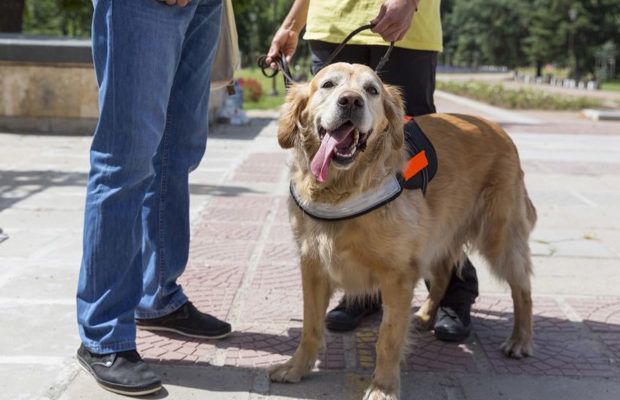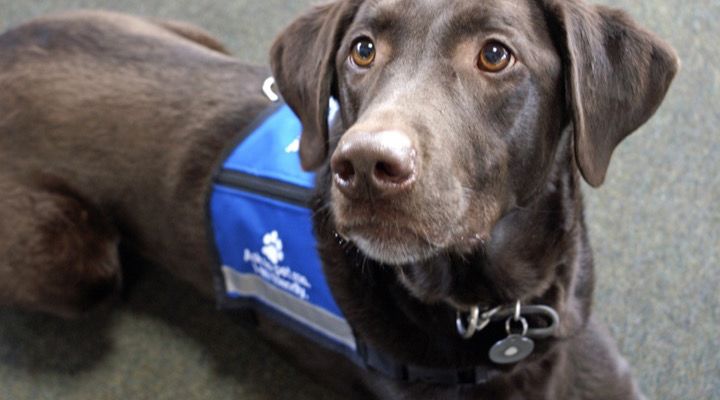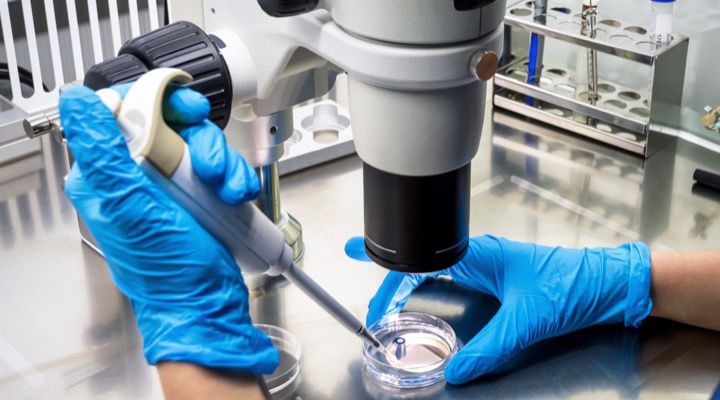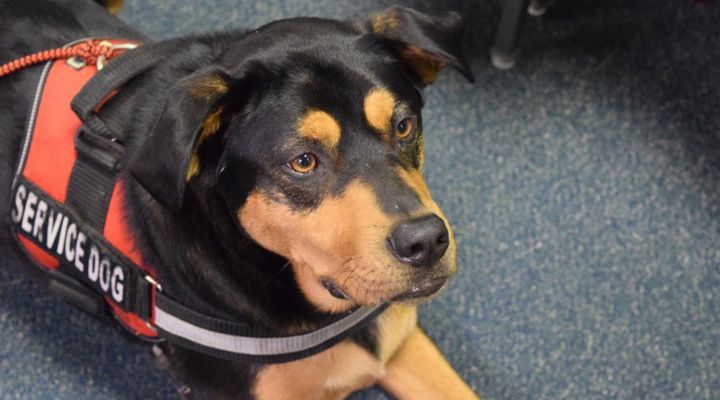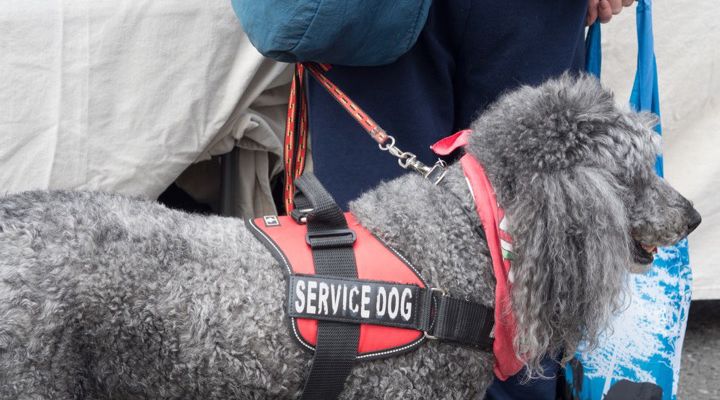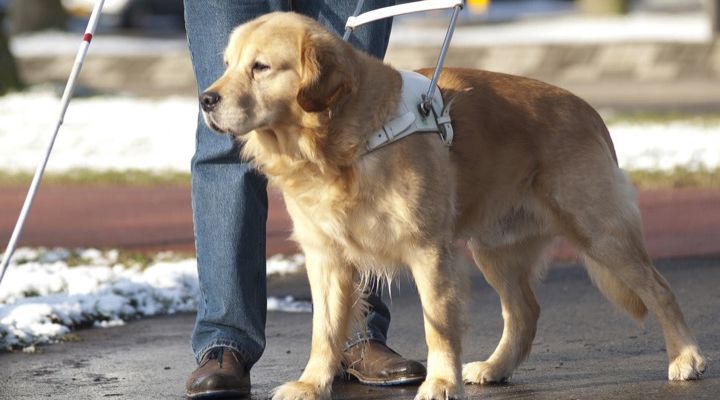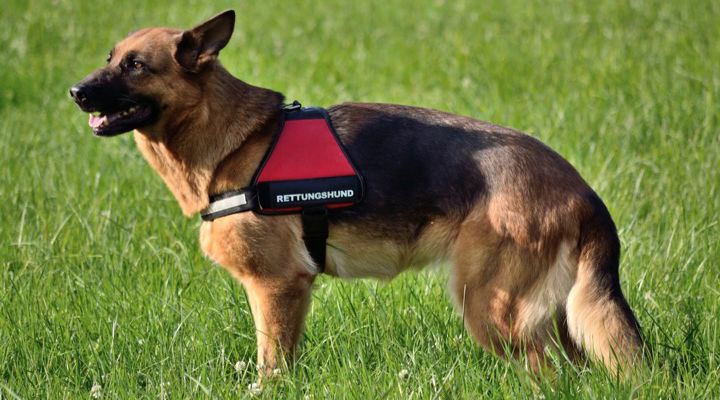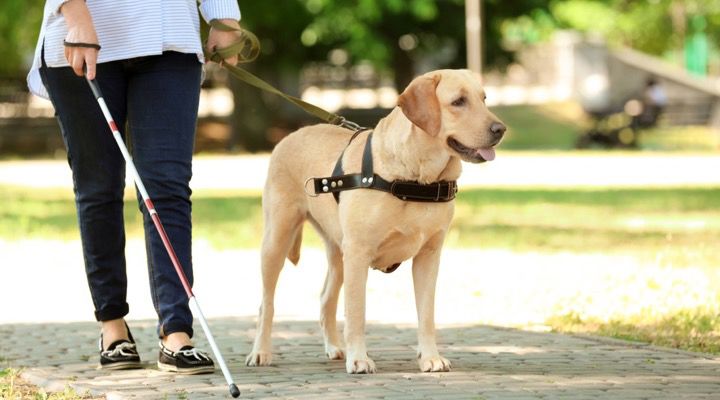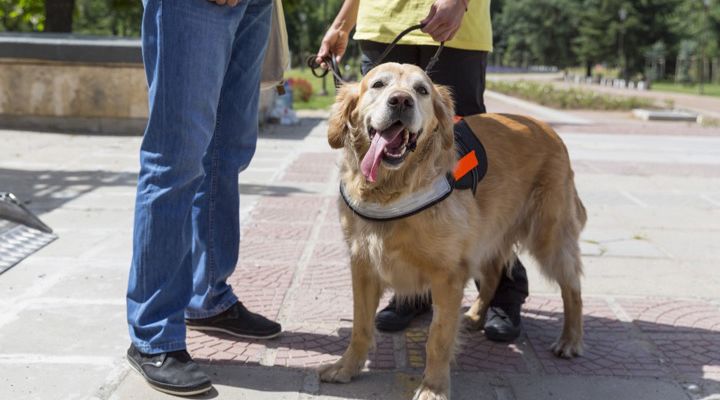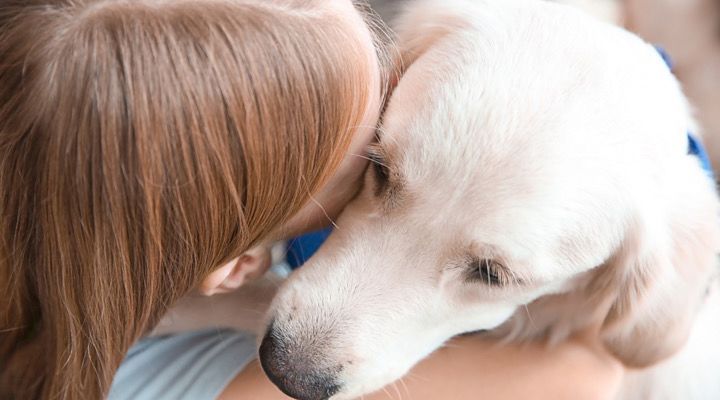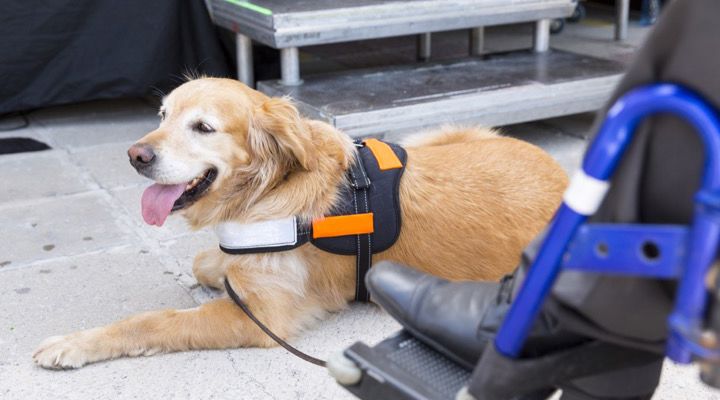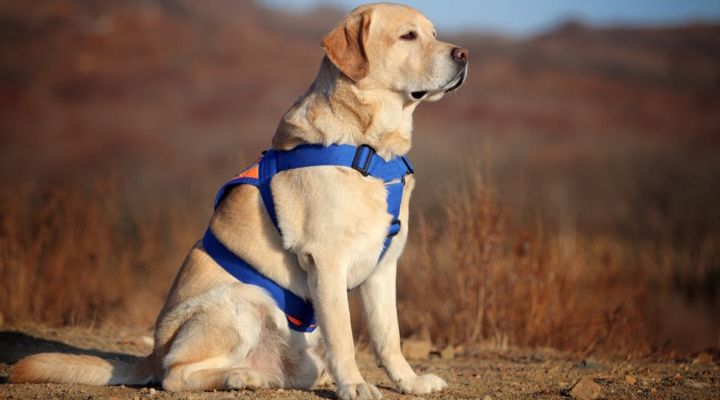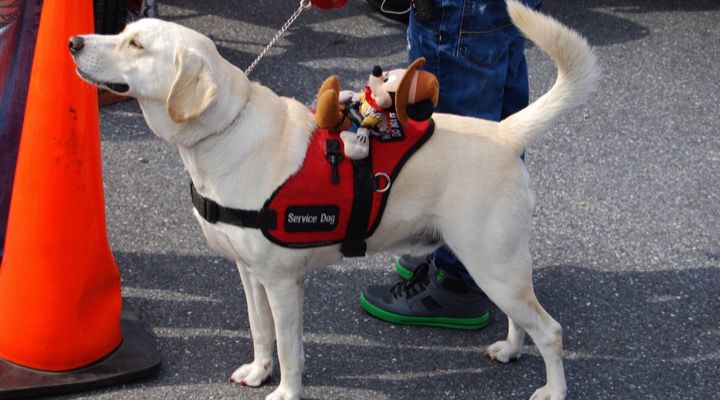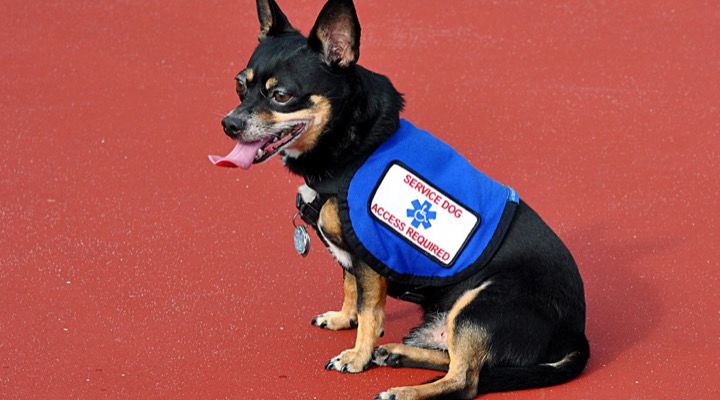There is no debating that therapy dogs are miracle workers, but the question remains if they actually enjoy their work. There are over 50,000 therapy dogs in the U.S., and they’re becoming more popular in other countries.
Therapy dogs are healing companions for people with a wide array of health conditions such as cancer, post-traumatic stress syndrome, and dementia. But new research is confirming that the benefits of dog therapy are real, and this includes for the animal itself…
Dogs Are Family
Nicole Audrey was raised with the understanding that dogs are family. She explained to NBC News: “My fiance and I are strongly sticking to this thinking and regard our two dogs as the most important creatures on the planet. We’re always thinking of ways to maximize their happiness.”
Dogs With Different Personalities
Audrey said that her senior dog, Netta, suffers from bad arthritis and is not as affectionate towards strange dogs that she doesn’t know. However, her new rescue, Josepher, 2, is the complete opposite and he’s sociable and outgoing. This made Audrey wonder if getting Josepher trained to be a therapy dog is a good idea…
Will Joseher Be A Good Service Dog?
She believes it will be a meaningful experience for her having spent a portion of her childhood in the hospital tending to her twin brother. But she wonders how Josepher would handle being a therapy dog and what qualifies one dog over another for the job? What is helping her make her decision is new research…
Therapy Dogs Were Studied
According to a new study published in “Applied Animal Behavior Science,” 26 therapy dogs were studied to determine if they were stressed by the work they did. What made this study unique was that it was multisite- it took place in five different hospitals across the country. The dogs worked in pediatric cancer wards and the study’s research measured levels of the dogs’ cortisol…
The Study
Cortisol, a hormone that becomes elevated when stressed, was taken from swabs in the dogs’ saliva at various times while they were on and off therapy duty. Researchers did this to establish the dog’s baseline. “With this study, we wanted to find out how the dogs find this work,” says Dr. Amy McCullough, national director, rescue & military affairs at American Humane and coauthor of the research.
Are Service Dogs Distressed?
“It was important for us to know that dogs are not distressed from these activities,” Dr. McCullough continued. She explained that they swabbed the dogs’ saliva about 20 minutes after the end of the therapy session and compared that to their baseline to see how it matched up…
The Experiment
The researchers also videotaped the sessions of the dog interacting with the children to tell whether the dog was not only not stressed but also happy doing the work. “We coded them for behaviors the dog was exhibiting, [identifying] stress-related and affiliative or friendly behaviors. We’d check off every time we saw behaviors like tail wagging, lip-licking, looking toward the child or turning away,” said Dr. McCullough.
Documenting The Interaction
They observed the behavior for the 15 to 20-minute sessions to get a context of the interaction and they also had the dog’s handler fill out a report. This report would inform them of what the dog did and who else aside from the child was present…
A Win-Win?
The results turned out to be great news and researched didn’t see any adverse behaviors. “The dogs were very engaged with what they were doing. Ultimately, this is a win-win-win. The handler enjoys showing the dog off and volunteering, the [patient] enjoys the dog and dog likes doing it,” said Dr. McCullough.
Therapy Dogs Are Happy
The study’s findings did not come as a surprise to Dr. Gary Richter, a veterinary health expert who told NBC News, “Therapy dogs are happy because they are doing something they love to do.” They get to interact with people and also perform tasks that they were trained for…
A Busy Dog Is A Happy Dog
This is a rewarding experience for dogs because just like people, Dr. Richter explains that some dogs really like having a purpose in their dog. “While they may not think about it in quite the same terms as us, dogs like to have a job to do.”
All Dogs Are Suitable, But Not All Dogs Are Meant For It
But this raises the question of if any dog can be suitable for a service dog, and the answer is yes. All dogs are suitable for this type of service, but not all dogs are meant for it. Certain traits play a role in their success at the tasks…
Service Dogs
Dr. Richter explains that some dogs need to be physically strong to assist disabled people and other dogs need to be very in tune to their owners and have an excellent sense of smell in order to detect seizures and blood sugar issues. “Guide dogs need to be very intelligent and be able to make certain decisions on their owner’s behalf.”
It Depends On Some Key Traits
This means that the right dog for the job depends on the dog’s breed, personality, trainability, and the job the dog is being asked to do. There is one characteristic however that is non-negotiable…
A Service Dog Must Love People
That is the dog’s demeanor. “You want a dog that absolutely loves people,” Heather Gillihan, owner at Zoom Room in Texas tells NBC News. “It doesn’t really matter if they don’t totally love other dogs (within reason), but you want a dog that just really wants to be with people. You can work with that and teach some of it but it does come down in part to mother nature.”
Some Dogs Are Better Fits Than Others
Gillihan also highlights that an overly anxious or nervous dog is not the best fit for a service dog. One of her four dogs is not a therapy dog for this reason as she’s easily startled. “It’s the hardest thing when your dog isn’t a fit because you want to give back.”
The Dog’s Well-Being Is The Most Important
However, the number one priority is looking out for the well-being of your dog. “If they’re not the right fit, then they’ll be stressed out and dangerous situations could arise.” Dr. Richter recommends that if you’re looking to get your dog started as a therapy dog, you’ll have to go through a certified training program to start.
Basic Obedience Training
This can be done by signing up with a local training facility, which may recommend a series of basic obedience training before getting started with a therapy training program. It’s easy for people that have friendly and sociable dogs to train them to go to hospitals and visit with people…
Requirements
There are guidelines and requirements in order for facilities to allow dogs to come. More complex tasks that some therapy dogs need to do are physical therapy assistants, hearing/visually-impaired assistance, or seizure/blood sugar monitoring.
Making Sure Your Dog Is Treated Properly
What’s most important to highlight here is that any dog in a service training role needs to be treated properly and with care by the trainer. It’s never acceptable for an animal to be treated like they are a piece of equipment.
